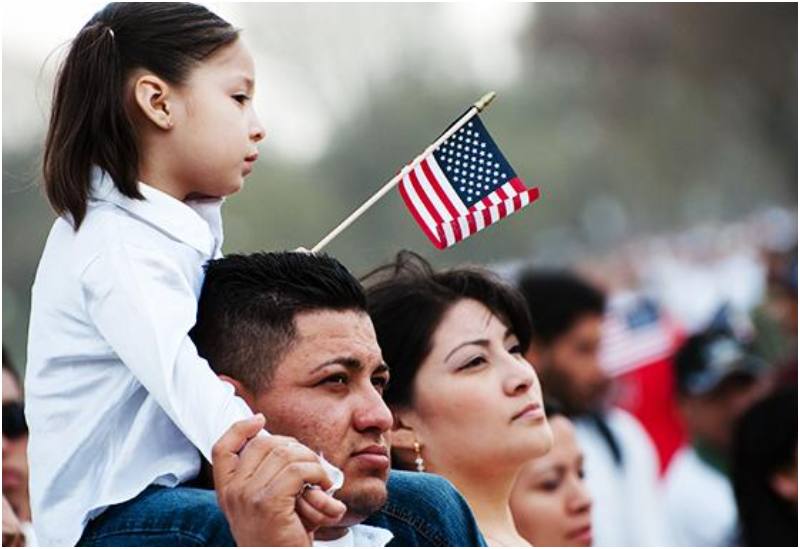The Trump administration’s immigration policies have intensified scrutiny over the legal process governing the deportation of lawful permanent residents and visa holders.
While prior administrations have exercised deportation authority, recent cases involving individuals with legal status—such as a Columbia University activist and a Brown University doctor—have raised questions about due process and executive overreach, reports Aljazeera.
Legal Grounds for Deporting Green Card Holders

A lawful permanent resident (LPR) with a green card cannot be summarily removed from the United States. The U.S. government must initiate formal removal proceedings and meet a legal burden of proof. Under U.S. immigration law, an LPR may be subject to deportation for reasons including:
- Criminal convictions (e.g., aggravated felonies, drug offenses, violent crimes)
- Immigration fraud (e.g., falsification of applications, misrepresentation)
- Abandonment of permanent residency
- Engagement in activities deemed a threat to national security
A charging document known as a Notice to Appear (NTA) formally initiates deportation proceedings. The government must then establish “clear and convincing evidence” that the individual meets grounds for removal.
Recent Cases Highlighting Legal Controversies

In an unprecedented move, immigration authorities under the Trump administration have cited Cold War-era laws to justify deportation efforts against activists and academics.
For instance, Columbia University graduate Mahmoud Khalil was detained under a provision that allows deportation if a noncitizen’s presence threatens U.S. foreign policy interests. Immigration officials later amended Khalil’s charging document, alleging he failed to disclose past employment with international organizations, thus constituting immigration fraud.
Similarly, Georgetown University graduate student Badar Khan Suri was detained under the same foreign policy provision. A federal judge temporarily blocked his removal, signaling legal pushback against the administration’s interpretation of immigration law.
In another high-profile case, Brown University kidney transplant specialist Rasha Alawieh, who held a valid work visa, was denied entry at a U.S. airport despite a court order preventing her deportation. Border officials cited photos of Hezbollah members found on her phone, though no formal evidence of security threats was presented.
The Role of Immigration Courts and Due Process
Unlike visa holders, green card holders have the right to defend their residency in immigration court. Immigration judges, not border agents or ICE officials, ultimately determine whether an LPR should be deported.
The Trump administration has faced legal challenges over attempts to bypass this process, particularly in cases where charges appear politically motivated.
Evidence Required for Deportation:
- Criminal records proving a qualifying offense
- Immigration documents showing fraud or misrepresentation
- Tax filings demonstrating abandonment of permanent residence
However, immigration attorneys argue that the administration has, in some cases, disregarded due process. Reports indicate ICE agents have detained green card holders under claims of visa revocation—despite the fact that green cards cannot be revoked without judicial proceedings.
Border Entry Challenges for Visa Holders
While green card holders have legal protections, visa holders—including tourists, students, and workers—face a different legal landscape. U.S. Customs and Border Protection (CBP) officers have discretionary authority to deny entry, often without requiring substantial evidence. This has led to incidents such as:
- A German tourist and tattoo artist denied entry for carrying tattoo equipment, which CBP assumed indicated intent to work unlawfully.
- A French scientist refused entry due to messages on his phone expressing opinions on U.S. science policies.
Are Immigration Officials Following the Law?
Legal experts remain divided. Some argue that the administration is adhering to legal procedures, while others contend that immigration authorities are disregarding established protections. Notably, the American Civil Liberties Union (ACLU) has accused ICE of violating the First Amendment by targeting activists like Khalil for their political views.
Legal Protections for Immigrants:
- At home: ICE cannot enter without a judicial warrant.
- At the airport: Green card holders cannot be denied entry but may be detained for questioning.
- In court: The burden of proof lies with the government in deportation proceedings.
As legal battles continue, these cases will likely shape future interpretations of immigration law, testing the limits of executive power over noncitizens who have historically enjoyed due process protections under U.S. law.

